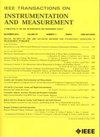Linear and Widely Linear Recursive Maximum Complex-Domain Loglikelihood Adaptive Filtering in Intricate Measurement Environments
IF 5.9
2区 工程技术
Q1 ENGINEERING, ELECTRICAL & ELECTRONIC
IEEE Transactions on Instrumentation and Measurement
Pub Date : 2025-06-23
DOI:10.1109/TIM.2025.3582314
引用次数: 0
Abstract
In industrial measurements, when signal reception is affected by hardware defects or asymmetric interference, I/Q imbalance can occur, which may result in the noise exhibiting noncircular and non-Gaussian characteristics, along with significant heterogeneous probability distributions in real and imaginary parts. In this setting, previous adaptive filtering cost functions (implicitly assumed homogeneous distributions) may perform well on one part but suffer on the other heterogeneous part, leading to an overall deteriorating performance, sometimes even inferior to the mean square error (mse) criterion. This article presents an innovative criterion specifically designed for such intricate measurement environments. Leveraging the inherent diversity of the Gaussian mixture model (GMM) to accommodate any probability distribution, we model the additive noises in real and imaginary parts. Through a linear combination, the overall noise is modeled as a complex-domain noncircular GMM (CNGMM). Then, a new cost function found on the recursive maximum complex-domain loglikelihood (RMCL) of the CNGMM is derived, with its linear and widely linear (WL) algorithms. Due to the excellent adaptability of CNGMM to intricate measurement environments, the proposed cost function consistently maintains outstanding performance under noncircular, non-Gaussian, and heterogeneous noises. An analysis of mean value and mean square convergence is also conducted. Further investigation reveals that the proposed steady-state mean square deviation (SS-MSD) is always less than or equal to that of complex recursive least squares (CRLS)/WL-recursive least squares (WL-RLS), which strongly indicates that RMCL/WL-RMCL is a superior scheme in intricate measurement environments. All theoretical predictions align well with simulations.复杂测量环境下的线性和广义线性递归最大复域对数似然自适应滤波
在工业测量中,当信号接收受到硬件缺陷或非对称干扰的影响时,可能会出现I/Q不平衡,这可能导致噪声呈现非圆形和非高斯特征,并且在实部和虚部具有显著的非均匀概率分布。在这种情况下,以前的自适应滤波代价函数(隐含地假设均匀分布)可能在一部分表现良好,但在另一部分表现不佳,导致整体性能恶化,有时甚至不如均方误差(mse)标准。本文提出了一个创新的标准,专门为这种复杂的测量环境。利用高斯混合模型(GMM)的固有多样性来适应任何概率分布,我们在实部和虚部对加性噪声进行建模。通过线性组合,将整体噪声建模为复域非圆GMM (CNGMM)。然后,在CNGMM的递推最大复域对数似然(RMCL)上推导了一个新的代价函数,并给出了其线性和广义线性(WL)算法。由于CNGMM对复杂测量环境的良好适应性,所提出的成本函数在非圆噪声、非高斯噪声和非均匀噪声下始终保持出色的性能。对均值和均方收敛性进行了分析。进一步的研究表明,所提出的稳态均方差(SS-MSD)总是小于或等于复杂递归最小二乘(CRLS)/ wl -递归最小二乘(WL-RLS),这强烈表明RMCL/WL-RMCL方案在复杂的测量环境中是一种优越的方案。所有的理论预测都与模拟相吻合。
本文章由计算机程序翻译,如有差异,请以英文原文为准。
求助全文
约1分钟内获得全文
求助全文
来源期刊

IEEE Transactions on Instrumentation and Measurement
工程技术-工程:电子与电气
CiteScore
9.00
自引率
23.20%
发文量
1294
审稿时长
3.9 months
期刊介绍:
Papers are sought that address innovative solutions to the development and use of electrical and electronic instruments and equipment to measure, monitor and/or record physical phenomena for the purpose of advancing measurement science, methods, functionality and applications. The scope of these papers may encompass: (1) theory, methodology, and practice of measurement; (2) design, development and evaluation of instrumentation and measurement systems and components used in generating, acquiring, conditioning and processing signals; (3) analysis, representation, display, and preservation of the information obtained from a set of measurements; and (4) scientific and technical support to establishment and maintenance of technical standards in the field of Instrumentation and Measurement.
 求助内容:
求助内容: 应助结果提醒方式:
应助结果提醒方式:


